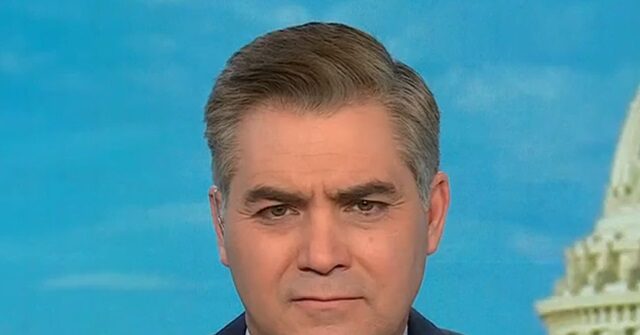On a recent episode of CNN’s “Newsroom,” Jim Acosta addressed the pressing concern regarding the media’s response to President-elect Donald Trump’s legal tactics aimed at holding the press accountable. During his dialogue with CNN contributor Brian Stelter, Acosta emphasized the importance of solidarity within the media industry in the face of perceived intimidation. He questioned the implications of Trump’s actions not only for news organizations but also for technology companies, suggesting a broader culture of compliance emerging within these sectors. Acosta’s remarks underscored the potential threat to journalistic integrity and the need for media outlets to remain steadfast in their reporting.
Acosta articulated a clear mission for the media: it should operate independently without succumbing to the external pressures, such as lawsuits or intimidation, that Trump has historically wielded against various publications. He expressed concern that the news industry could experience a chilling effect, where fear of retribution leads to self-censorship among journalists. By stressing the ongoing nature of Trump’s approach, Acosta reinforced the notion that the responsibility of the press is critical during such politically charged times—especially as the validity of public statements, particularly those needing fact-checking, becomes paramount in holding power accountable.
Stelter contributed to the discussion by highlighting past instances of Trump using legal action as a means to intimidate the media. He referred to comments from Richard Senegal, a former Time magazine editor, who noted that Trump’s lawsuits often aimed to create an environment of fear, rather than focusing on winning specific legal battles. This historical context brings to light the greater issue of self-censorship that many journalists may fear, as they navigate the sometimes hostile environment created by high-profile figures willing to use litigation as a weapon against dissenting voices. Acosta and Stelter’s dialogue serves as a rallying cry for the media, urging them to uphold their role without compromising their principles.
The discussion on “Newsroom” reflects a larger societal concern about the state of free press in contemporary America, where the line between accountability and intimidation can often blur. Acosta’s call for the media to stand firm resonates with a growing sentiment among journalists, concerned about the erosion of freedoms under political duress. By reaffirming their commitment to objective reporting, media outlets can foster a climate conducive to healthy public discourse, critical analysis, and the essential function of journalism as a watchdog of democracy.
Importantly, Acosta’s remarks also suggest that the media has a duty to serve the public before catering to political interests. As both he and Stelter conveyed, the heart of journalism lies in its service to the audience, emphasizing the role of reporters in providing unfiltered, accurate information to inform public opinion and decision-making. This perspective not only affirms the media’s obligation to its viewers but also challenges the prevailing narrative that equates political pressure with an obligation to submit or remain silent. Acknowledging their responsibility fosters an environment that champions transparency and accountability, which is essential for a functioning democracy.
In conclusion, Acosta’s provocative statements on CNN reflect his concern about the trajectory of American journalism in the face of political threats. By advocating for integrity and courage within the media, he highlights the essential need for journalists to resist the influence of intimidation tactics and to continue their fundamental role as truth-tellers. Both he and Stelter underscore that the press must remain vigilant, especially as accountability and free speech face new challenges in an evolving political landscape. In doing so, they issue a clarion call for unity within the media, reinforcing the notion that defending journalistic standards is a collective responsibility aimed at safeguarding democracy itself.

